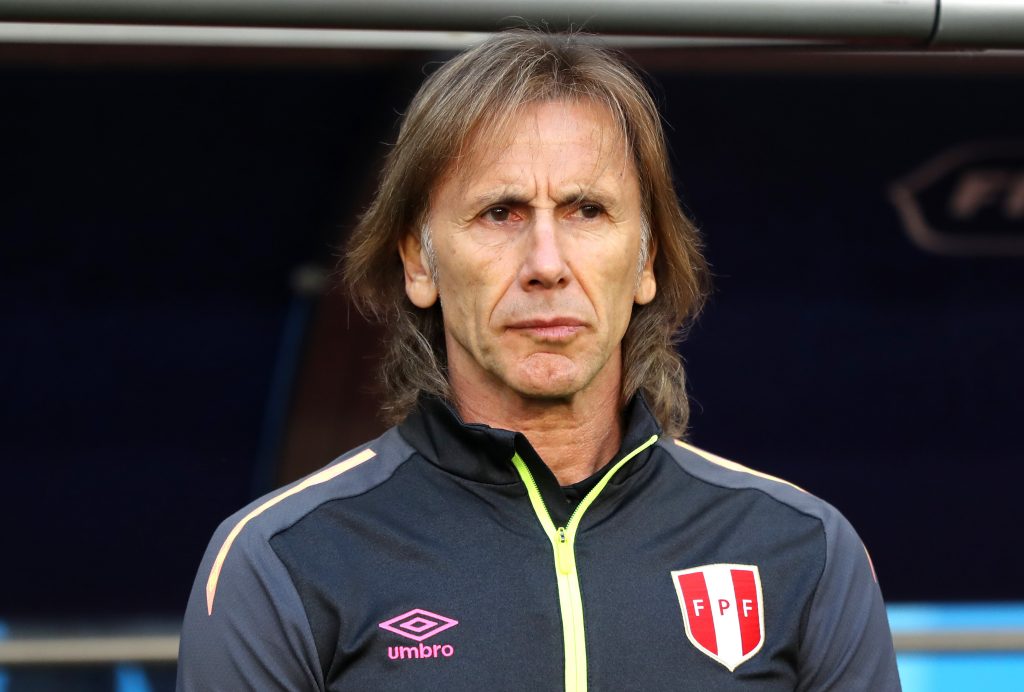On a cold June night in Buenos Aires almost 33 years ago, Ricardo Gareca squashed Peru’s chances of qualifying for the 1986 World Cup, beginning a World Cup drought that turned soccer into suffering for generations of Peruvians. So it’s only fitting that Gareca is the very man who broke the curse and led Peru out of exile.
It was the 81st minute of the game. Peru was ahead 2-1 – a result that would qualify them for Mexico and eliminate the Argentinians – when Daniel Passarella lowered the ball with his chest in Peru’s penalty area and made a furious shot that Peru’s goalkeeper Eusebio Acasuzo barely deflected. The ball hit the post and danced on the line for what seemed like an eternity. In the confusion, Gareca extended his foot and pushed the ball inside. 2-2. Enough for Argentina to qualify and Peru to go to a play-off with Chile that they ultimately lost.
Years later, Diego Maradona would reflect on that moment, and Gareca’s importance, in his memories: “I didn’t even realize who scored the goal, but Pedrito Pasculli was close and I gave him a hug, I hugged anyone around me. But it was Gareca, it was el Flaco. If not [for him], the ball would have gone out, it would have gone out,” he recalled. “We qualified for the Mexico World Cup right there and, I swear on my mother, I told el Flaco Gareca: ‘We’re going to end up at the World Cup final just like this… suffering, but winning it.”
Maradona’s words turned out to be prophetic, except for one detail: Gareca wasn’t with the team when they lifted the trophy. He was left off the squad by the coach, Carlos Salvador Bilardo. His exclusion was a source of regret for Gareca for many years.
“I wasn’t well emotionally, I had big expectations with the national team and didn’t achieve them. Not going to the World Cup was a very hard hit,” he said years later in an interview.

Though he reached Copa Libertadores final on three occasions with Colombian club América de Cali and won the golden boot of the tournament, “El Tigre” didn’t get another chance to go to a World Cup and retired in 1994.
The year afterward he started his career as a coach, leading Argentinian clubs Talleres de Cordoba and Velez Sarsfield to local and international titles. But by March of 2015 he was out of a job, after having a disastrous season with the Brazilian giant Palmeiras. That’s when Peru came calling.
His first months with the Blanquirroja weren’t a honeymoon. The team had its worst qualifiers start in its history, gaining only four points in 7 games. The press and fans wanted his head, but a good showing at the Copa America Centenario, where he used a base of young players and had more than 40 days to work with them, showed that he was onto something.
“He changed our mentality. We started to believe. Even in the worst moments, he always trusted us and we trusted him,” explained midfielder Christian Cueva, one of the youngsters who got his opportunity with Gareca. From that moment on, Peru only lost two games in the World Cup qualifiers, which helped them reach 5th place and gave them the right to face New Zealand in a two-game playoff for one ticket to Russia. This was quite a feat for a team that before Gareca, was better known for its escapades and lack of discipline, than for its style of play.
When the referee signalled the end of the second game in the Estadio Nacional in Lima, with a 2-0 score in favor of Peru, the first thing Cueva did was turn around and hug Gareca, crying with joy on his shoulder. El Tigre gave him a paternal kiss on the head and contemplated his work. He had made the impossible, possible.
In Russia, Gareca will have the chance to finally enjoy a World Cup, but he doesn’t see it as a personal revenge on his country. “I’ll never be able to replace as a coach what I couldn’t achieve as a player. It is a challenge to improve as a manager and fulfill the objectives,” he said in a recent CNN interview. Regardless of the results of the group stage, El Tigre has already paid his debt to Peru and himself, and then some.







